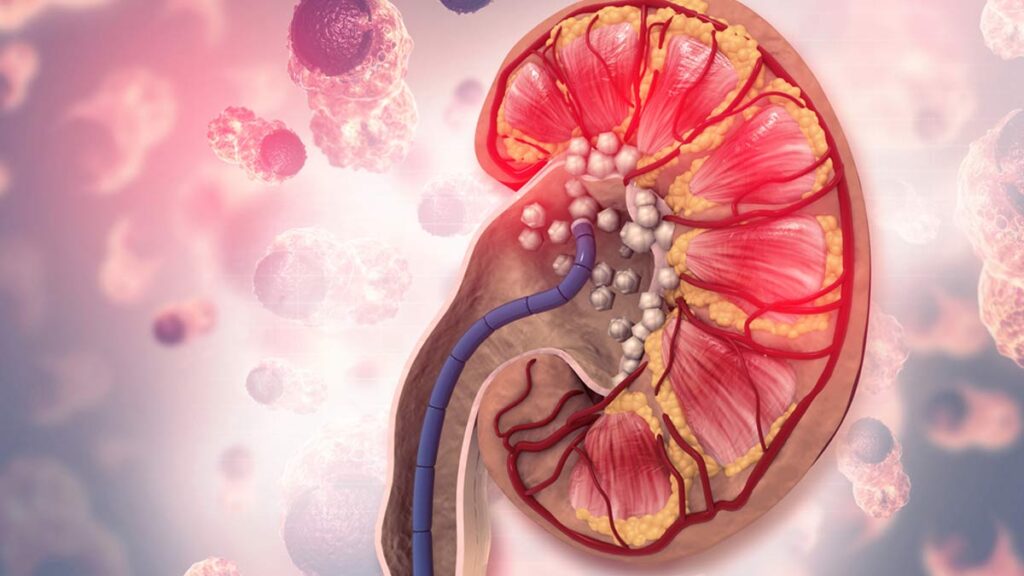
Introduction
Kidney stones are common, often painful, and unfortunately, surrounded by a lot of misinformation. From old wives’ tales about diet to misunderstandings about treatment, these myths can cause unnecessary anxiety and sometimes even lead people to make poor health decisions. Getting the facts straight is essential for effective prevention and management.
I’m Dr. Venkatesh Kumar, a Urologist, Sexologist, and specialist in Robotic Surgery serving patients across Noida and Noida Extension. In my practice, I frequently encounter patients holding onto common misconceptions about kidney stones. Let’s clear the air and debunk some prevalent myths using evidence-based information, drawing inspiration from reliable health resources like Apollo Hospitals, but tailored with insights from my clinical experience.
Why Kidney Stone Myths Can Be Harmful
Believing incorrect information about kidney stones can lead to:
Delaying necessary medical evaluation: Thinking symptoms aren’t serious or trying ineffective home remedies.
Following harmful dietary advice: Unnecessarily restricting healthy foods or consuming things thought to help but actually hinder.
Increased anxiety: Worrying based on inaccurate fears about treatment or recurrence.
Missing opportunities for prevention: Not understanding the real risk factors and how to address them.
Busting Common Kidney Stone Myths: Fact vs. Fiction
Let’s separate fact from fiction for some of the most common kidney stone myths:
Myth 1: Drinking Milk or Eating Calcium-Rich Foods Causes Kidney Stones.
Fact: This is perhaps the most damaging myth! For the most common type of kidney stones (calcium oxalate), adequate dietary calcium is actually protective. Calcium consumed with meals binds to oxalate in the intestines, preventing it from being absorbed into the bloodstream and excreted by the kidneys where it could form stones. Severely restricting dietary calcium can increase your stone risk and harm bone health. The key is getting enough calcium from your diet (like dairy, fortified foods), preferably with meals. Discuss calcium supplements with your doctor, as these might need careful consideration.
Myth 2: Only Very Large Kidney Stones Cause Pain.
Fact: Pain intensity isn’t solely determined by size. Even tiny stones can cause severe pain if they move into and block the narrow ureter (the tube connecting the kidney to the bladder). Conversely, very large stones sitting quietly inside the kidney might cause little to no pain initially. Pain typically occurs when the stone causes blockage or irritation.
Myth 3: All Kidney Stones Require Surgery.
Fact: Absolutely not. Many smaller stones pass on their own with supportive care like hydration and pain management. For stones that don’t pass or cause complications, numerous effective treatments exist that often don’t involve traditional open surgery. As a Urologist in Noida, I offer various options including Medical Expulsive Therapy (medication to help pass stones), minimally invasive procedures like Ureteroscopy (using a small scope) and Shock Wave Lithotripsy (using sound waves), and advanced Robotic Surgery for complex cases, ensuring tailored treatment with faster recovery.
Myth 4: Drinking Beer Helps Flush Out Kidney Stones.
Fact: While beer has a diuretic effect (makes you urinate more), this is temporary and not a targeted treatment. Alcohol can lead to dehydration, which increases the risk of stone formation. It can also increase uric acid levels. Relying on beer is ineffective and potentially harmful. Consistent hydration with water is the best way to help flush the urinary system.
Myth 5: Coffee and Tea Must Be Avoided If You Have Kidney Stones.
Fact: Moderate consumption of coffee and tea is generally considered safe and may even be associated with a slightly lower risk of kidney stones for some people, likely due to increased fluid intake and diuretic effects. However, excessive intake could contribute to dehydration. Tea (especially black tea) is high in oxalate, so if you’re a calcium oxalate stone former, consuming it in moderation and ensuring adequate calcium intake with meals is wise.
Myth 6: Once You Pass a Kidney Stone, You Won’t Get Another One.
Fact: Unfortunately, having one kidney stone significantly increases your risk of forming more in the future (recurrence rates can be up to 50% within 5-10 years). This is why understanding the cause of your stone (through analysis and metabolic testing) and implementing preventative strategies (diet, hydration, sometimes medication) guided by a urologist is so crucial.
Myth 7: Kidney Stones Only Affect Older People.
Fact: Kidney stones can occur at almost any age, from children to the elderly. While the peak incidence is often in middle age, dietary habits, hydration levels, genetics, and certain medical conditions mean that young adults and even teenagers can develop kidney stones.
Don’t Rely on Myths – Seek Expert Urological Advice in Noida
The internet is full of information, but not all of it is accurate. When it comes to your health, especially a potentially painful condition like kidney stones, getting personalized advice from a qualified medical professional is essential.
As your Urologist in Noida and Noida Extension, I can provide:
Accurate diagnosis using tools like Ultrasound and CT scans.
Analysis of your stone type (if passed or removed).
Metabolic evaluation (blood and urine tests) to identify underlying causes.
Personalized treatment plans, from conservative management to advanced surgery.
Evidence-based prevention strategies tailored to YOU.
Conclusion
Don’t let myths and misinformation dictate your approach to kidney stones. Understanding the facts empowers you to make better decisions for your kidney health, focusing on proven strategies for treatment and prevention.
If you have questions about kidney stones, are experiencing symptoms, or want to develop a personalized prevention plan based on facts, not fiction, schedule your consultation with me, Dr. Venkatesh Kumar, Urologist, Sexologist, and Robotic Surgeon in Noida.

